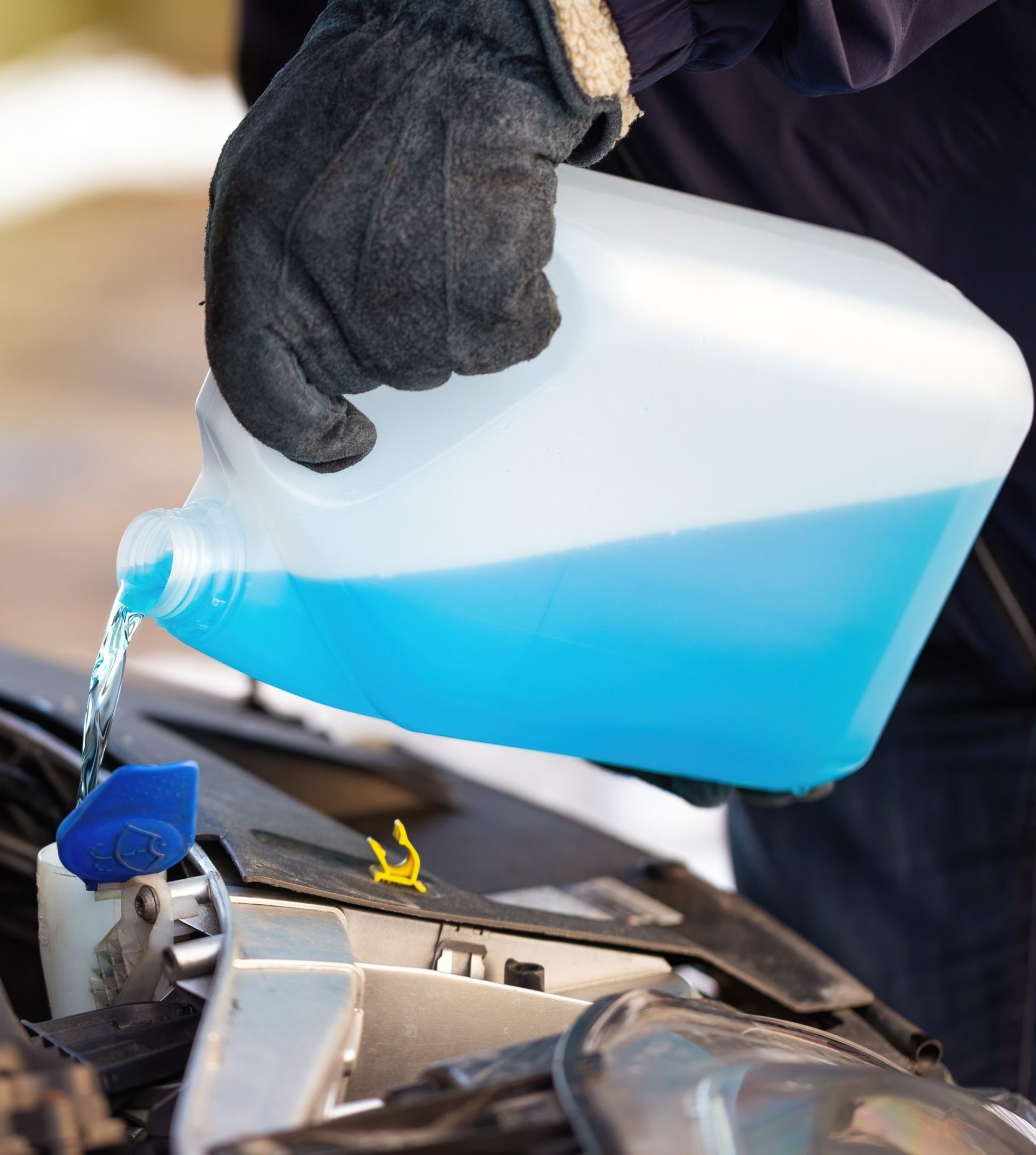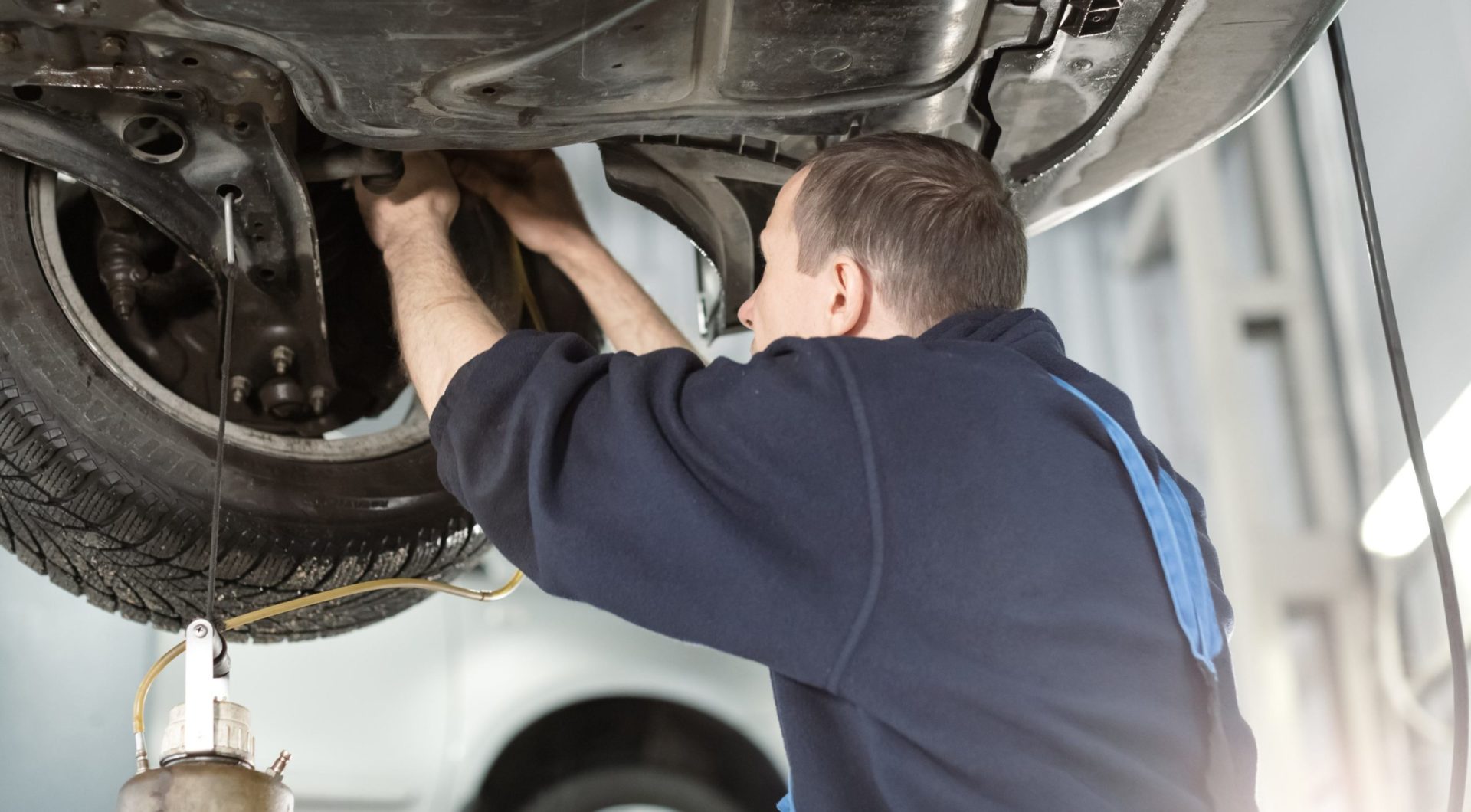Every year, cars are becoming more advanced. As their designs evolve, the fluids necessary to keep them moving grow more complex, too. A do-it-yourselfer must make sure to use the correct type of automotive fluid for each function or risk causing costly damage to their pride and joy – their vehicle.
Here’s the essential fluids you should know to make sure you’re keeping your car in the best shape possible.

1. Engine Oil
Engine oil keeps the moving parts in your engine from producing too much friction and overheating. Old oil loses viscosity and can affect our fuel economy as well as causing premature wear and tear over the years.
Driving with low engine oil level can also damage your vehicle, also, leading to expensive repairs. You’ll want to keep on top of it by checking it yourself or having it serviced by a qualified mechanic.
Be careful before you top it off yourself. Modern engines are built to much tighter tolerances and have very complicated valve trains. The oil must be thin enough to lubricate even when the engine is cold.
You’ll see the weight listed as 20-W-50 or 5-W-30. The automakers recommend the weight of oil for each vehicle they make based on engine design. You also have the choice of conventional motor oil, full synthetic motor oil, or a blend. We recommend Valvoline Synthetic oil to keep our vehicle running in top condition.
A quality service center will know what weight your auto manufacturer recommends. They will be able to offer suggestions for special formulations, as well as talk to you about conventional and synthetic motor oils.
The recommended frequency of oil changes can vary between cars — you should always check your owner’s manual — but a good rule of thumb is between 3,000 to 5,000 miles. Your car care specialist can give you a more specific number if you are unsure.
2. Antifreeze/Coolant
Residents of southeast Georgia are all too familiar with scorching hot temps. Without antifreeze, or coolant, the water in your engine won’t be able to maintain a safe temperature. In the heat, antifreeze keeps it from boiling over. In the colder weather, it keeps it from freezing.
For years, manufacturers only recommended a couple of different types of coolant. Now, several different formulations are needed because of the high-tech materials that automobile manufacturers are using to build the cooling system. Using the wrong type of coolant in your car, truck, or SUV can actually void your warranty, so it’s key to get that right.

These levels should be checked at the beginning of the summer and winter, at the very least. However, it’s best to check your levels every season. You should bring your vehicle into a certified mechanic for a coolant flush every couple of years, or according to manufacturer’s recommendations.
3.Power Steering Fluid
In a hydraulic power steering system, power steering fluid allows you to turn the wheel of your car with ease and little effort. It creates a hydraulic link between the steering wheel and your car’s front tires, as well as ensuring the individual parts are lubricated and working. Without it, you’d be left to turn your car with your body strength alone.
Nowadays, some newer vehicle models use electric power steering or a mix of electric and hydraulic power steering. It may also use either full synthetic oil or a non-synthetic oil. Though most cars use synthetic oil, it’s important to check with a trusted car service specialist to see what type of power steering system your car has, and what type of fluid it may need.
If you notice your wheel becoming more difficult to turn, or if it begins making noise, it’s a sign you should check your power steering fluid. It’s best to schedule an appointment for service with your local auto repair shop after about 50,000 miles. A bad power steering pump can even cost you anywhere up to $800.
4.Transmission Fluid
When you’re shifting between gears, your transmission fluid is at work.It keeps the parts of your gearbox lubricated to reduce friction, prevents overheating, and keeps things clean so you can slide in and out of gear with ease.
The type of transmission fluid you will need is dependent upon whether your car is a manual or automatic. Older manual cars might use a heavier weight fluid for their cars, but newer models might use Automatic Transmission Fluid (ATF) even if they’re manual. ATF will often vary between synthetic and traditional as well. Trust your car care specialist to be able to keep you informed on which type you’ll need.
If you are having difficulty shifting gears, check if your transmission fluid is low. Otherwise, it’s a good idea to check your transmission fluid every 30,000 miles or 60,000. If you find yourself often traveling with heavy loads or otherwise putting stress on your transmission, check it more frequently.

Brake Fluid
Brake Fluid is the hydraulic fluid that makes sure the force of your foot on the brakes brings your car to a stop. Without it, you and your family could find yourselves in a dangerous situation.
The formulation of brake fluid needs to be incredibly specific, remaining consistent throughout different temperatures. Different vehicles will require a specific viscosity and use specific bases. Mixing brake fluids is never recommended, especially considering that it is one of the most toxic fluids in your car.
As with almost everything mentioned in this list, you can find the information on what specific type within your owner’s manual or ask your specialist who will be happy to explain.
A brake fluid flush is recommended every five years.
6. Windshield Washer Fluid
When a bird blesses your windshield or a bug hits right at your eye level, washer fluid is there to wipe it away. If you’re going down a dirty old road that splatters your car with mud, this detergent based solvent (often mixed with antifreeze) will help ensure you can still see. It may come in different formulations based on your needs.
Many cars will helpfully warn when you’re low on washer fluid. If you find yourself using it frequently, it might be necessary to refill it every season. However, as it is one of the lower stakes fluids, you can generally wait until the light comes on.

D&R Car Care Can Help
If you’re struggling to remember the various types of oils and fluids and when to check the fluid levels in your car, the courteous specialists at D & R Car Care can help.
With our multi-point inspection, we can help a curious Georgia car owner understand what type of vehicle fluids they might need and whether any need replacing. Our team can even suggest the best formulation for your car and driving habits in the Statesboro area.
Not too long ago, there was a good chance that all of the vehicles at your Statesboro house would use many of the same fluids. However, as automotive technology advances, the array of basic automotive fluids drivers need is growing. Fortunately, D & R Car Care will continue to update their training to keep pace with technology so that you’ll get the right fluids your car needs. It’s all part of the commitment we make to your driving peace of mind.
If your vehicle is showing signs of wear or just needs routine maintenance, trust the ASE Certified professionals at D & R Car Care to provide the best service available for you and your car. Schedule your service today.





